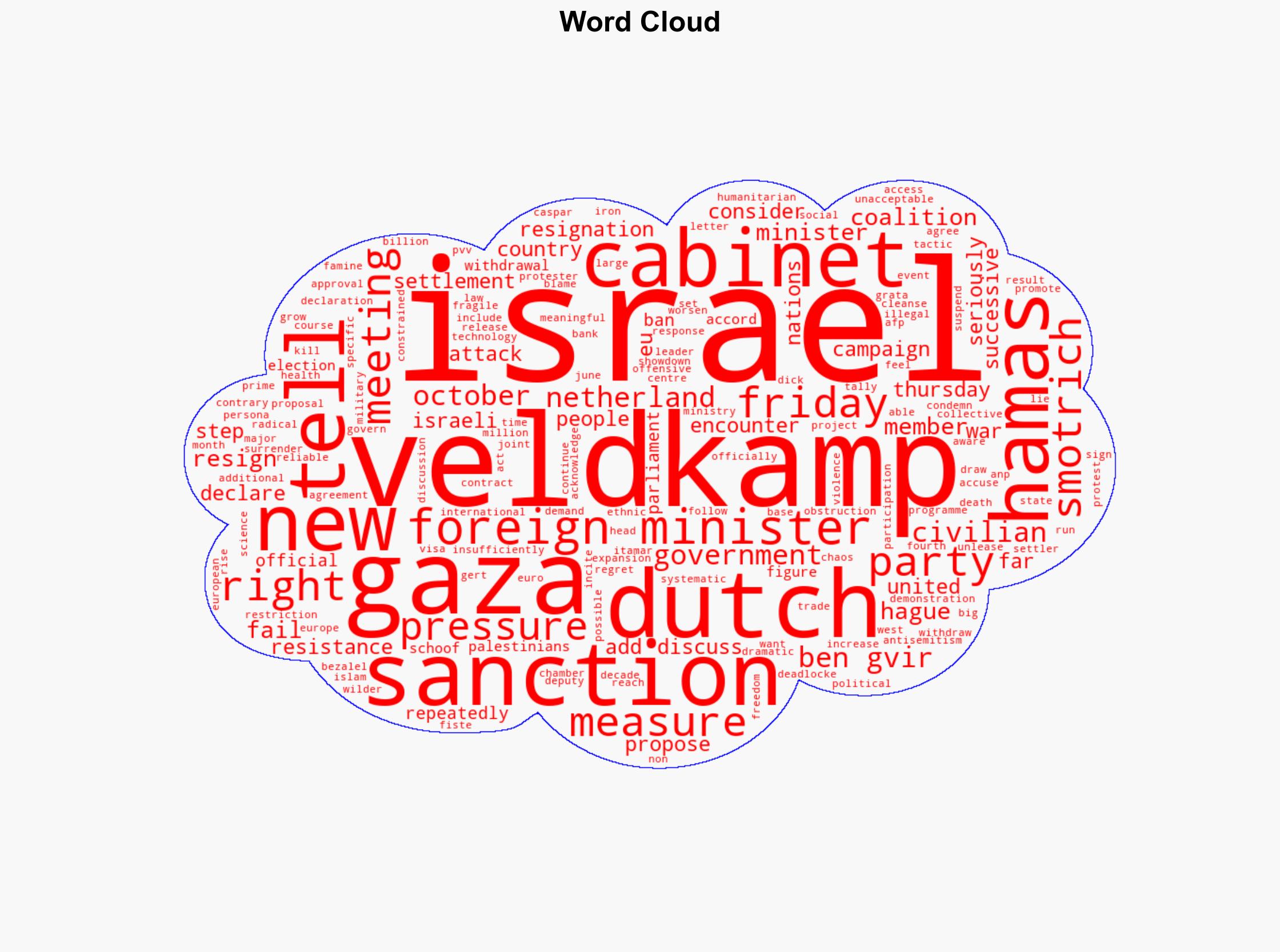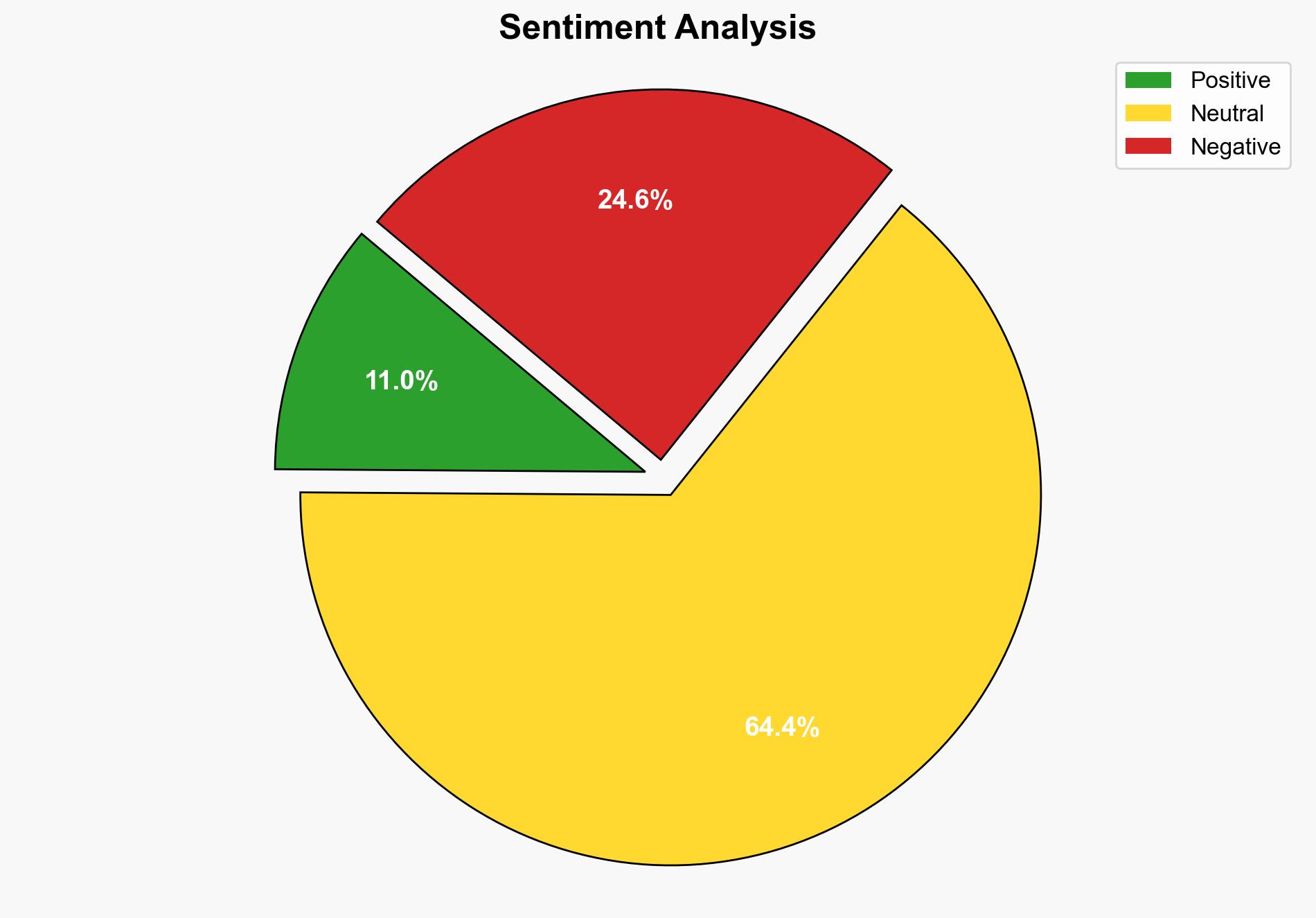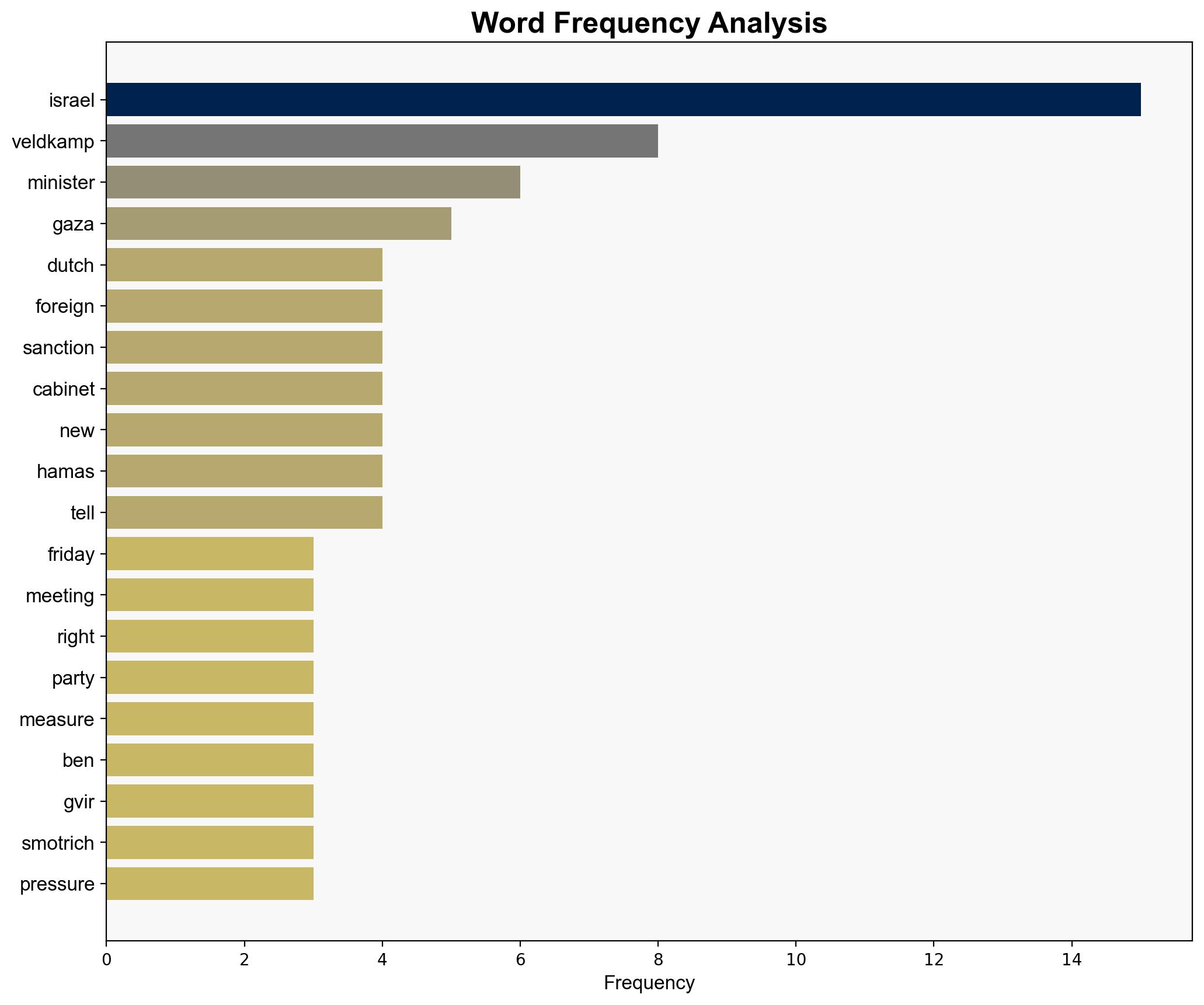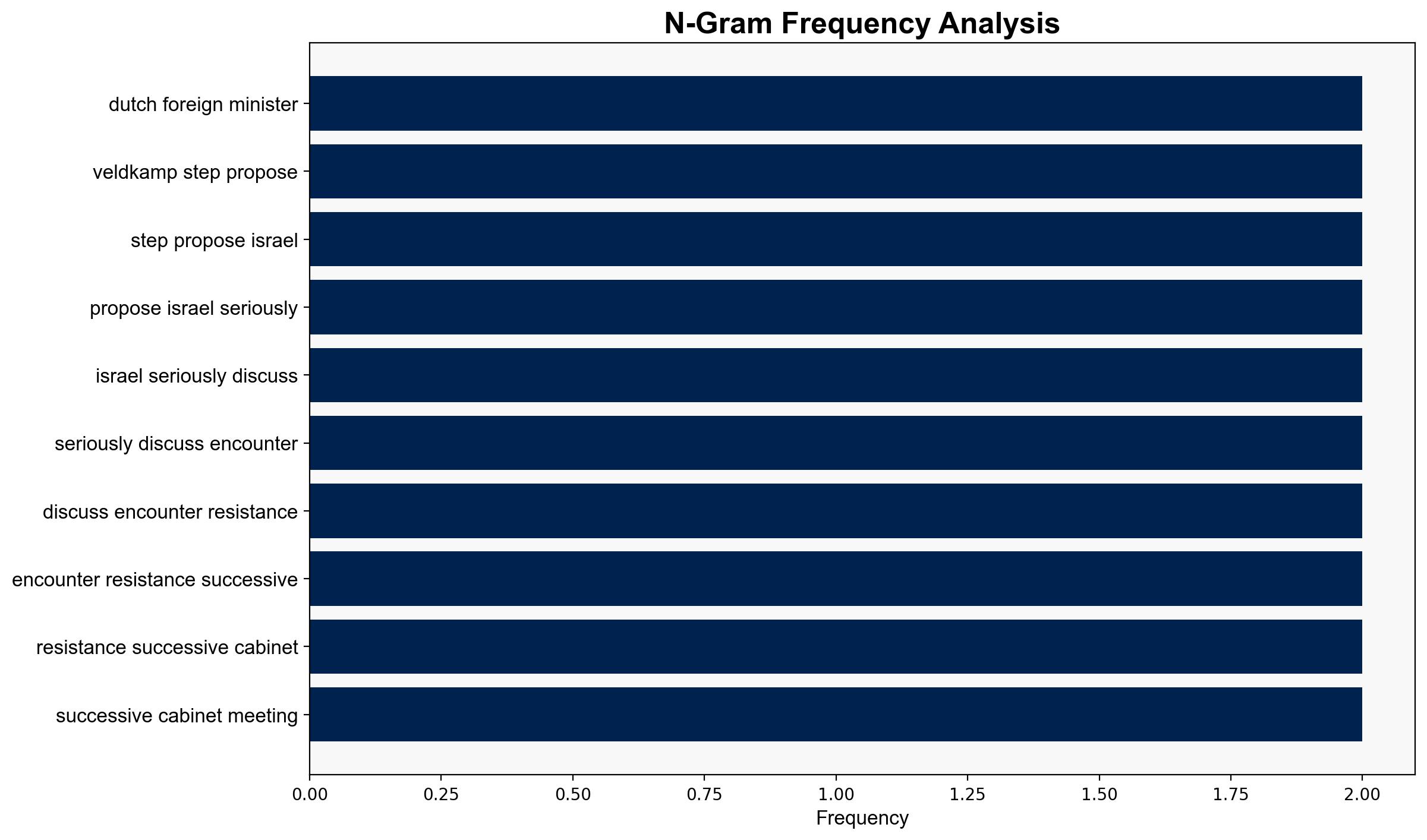Dutch foreign minister resigns over Israel sanctions showdown – Hurriyet Daily News
Published on: 2025-08-23
Intelligence Report: Dutch foreign minister resigns over Israel sanctions showdown – Hurriyet Daily News
1. BLUF (Bottom Line Up Front)
The resignation of the Dutch foreign minister, Caspar Veldkamp, amid a cabinet deadlock over sanctions against Israel highlights significant political instability in the Netherlands. The most supported hypothesis suggests that internal political discord and pressure from coalition partners led to the resignation. Confidence in this assessment is moderate, given the complexity of international and domestic factors. It is recommended that the Dutch government stabilize its political environment and engage in diplomatic dialogue to address the underlying issues.
2. Competing Hypotheses
1. **Internal Political Discord Hypothesis**: Veldkamp’s resignation was primarily driven by internal political discord within the Dutch government, exacerbated by coalition tensions and differing views on foreign policy towards Israel.
2. **External Pressure Hypothesis**: The resignation was a result of external pressure from international entities and public protests demanding stronger actions against Israel, which Veldkamp could not reconcile with the government’s stance.
Using ACH 2.0, the internal political discord hypothesis is better supported due to the emphasis on coalition instability and Veldkamp’s inability to implement desired measures. The external pressure hypothesis is less supported as it lacks direct evidence of overwhelming influence on the resignation decision.
3. Key Assumptions and Red Flags
– **Assumptions**: It is assumed that coalition dynamics are a primary driver of policy decisions. Another assumption is that public protests significantly influence government actions.
– **Red Flags**: The lack of detailed information on specific coalition disagreements and the absence of clear evidence linking external pressures directly to the resignation are notable gaps.
– **Potential Bias**: Confirmation bias may arise from focusing on internal political factors without adequately considering external influences.
4. Implications and Strategic Risks
The resignation may lead to increased political instability in the Netherlands, potentially affecting its international relations and domestic policy coherence. If unresolved, this instability could weaken the government’s ability to respond to international crises and influence EU policy on Middle Eastern affairs. Economic repercussions might arise if political instability affects investor confidence.
5. Recommendations and Outlook
- **Mitigation**: The Dutch government should prioritize coalition negotiations to stabilize the political landscape. Engaging in dialogue with international partners to clarify foreign policy objectives is crucial.
- **Exploitation**: Utilize this period to reassess foreign policy strategies, potentially positioning the Netherlands as a mediator in Middle Eastern conflicts.
- **Scenario Projections**:
- **Best Case**: Coalition stabilizes, leading to coherent foreign policy and improved international standing.
- **Worst Case**: Continued political instability leads to early elections and weakened international influence.
- **Most Likely**: Short-term instability with gradual stabilization as coalition partners negotiate terms.
6. Key Individuals and Entities
– Caspar Veldkamp
– Itamar Ben Gvir
– Bezalel Smotrich
– Gert Wilders
– Dick Schoof
7. Thematic Tags
national security threats, geopolitical instability, coalition politics, Middle East policy





